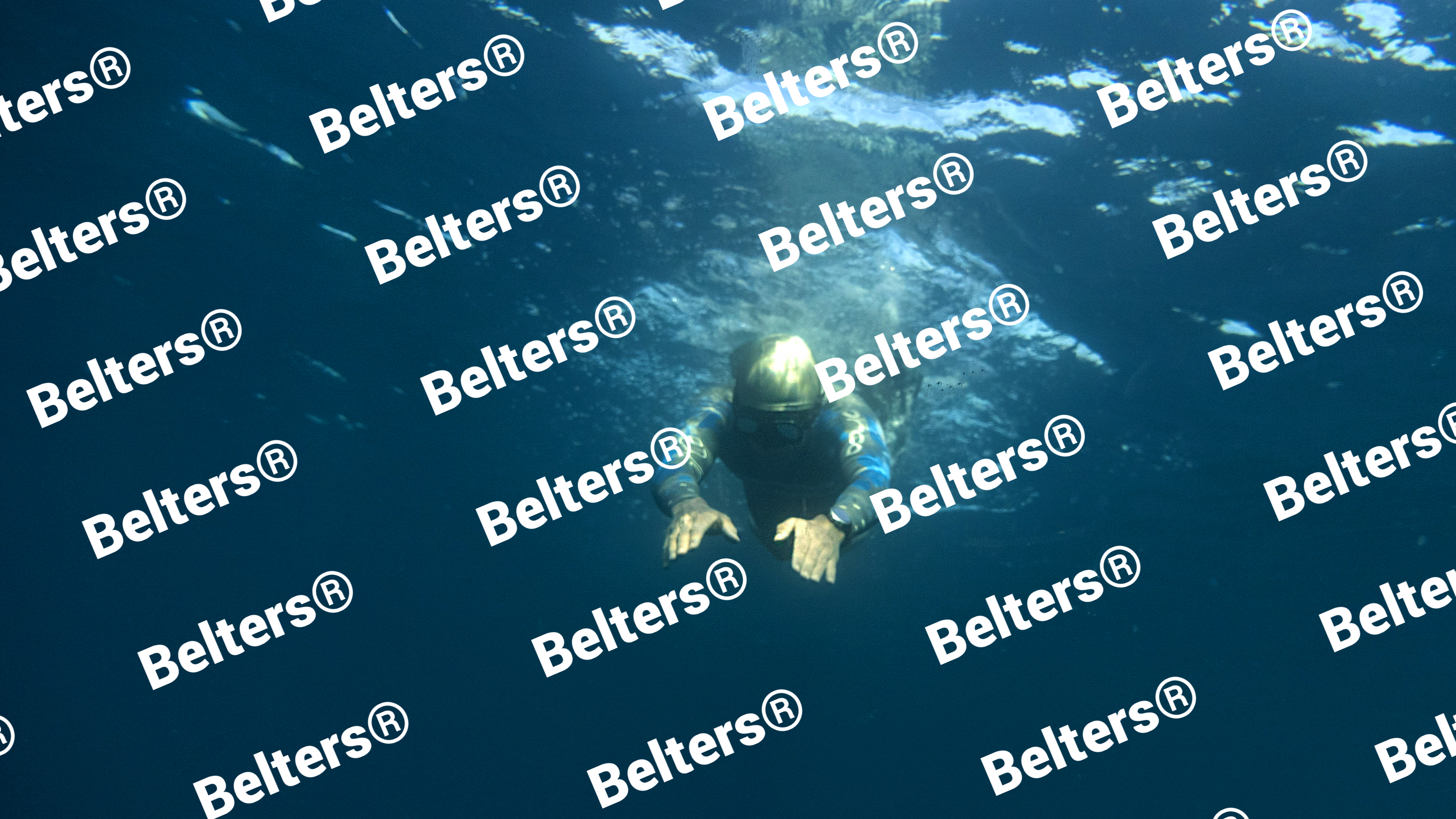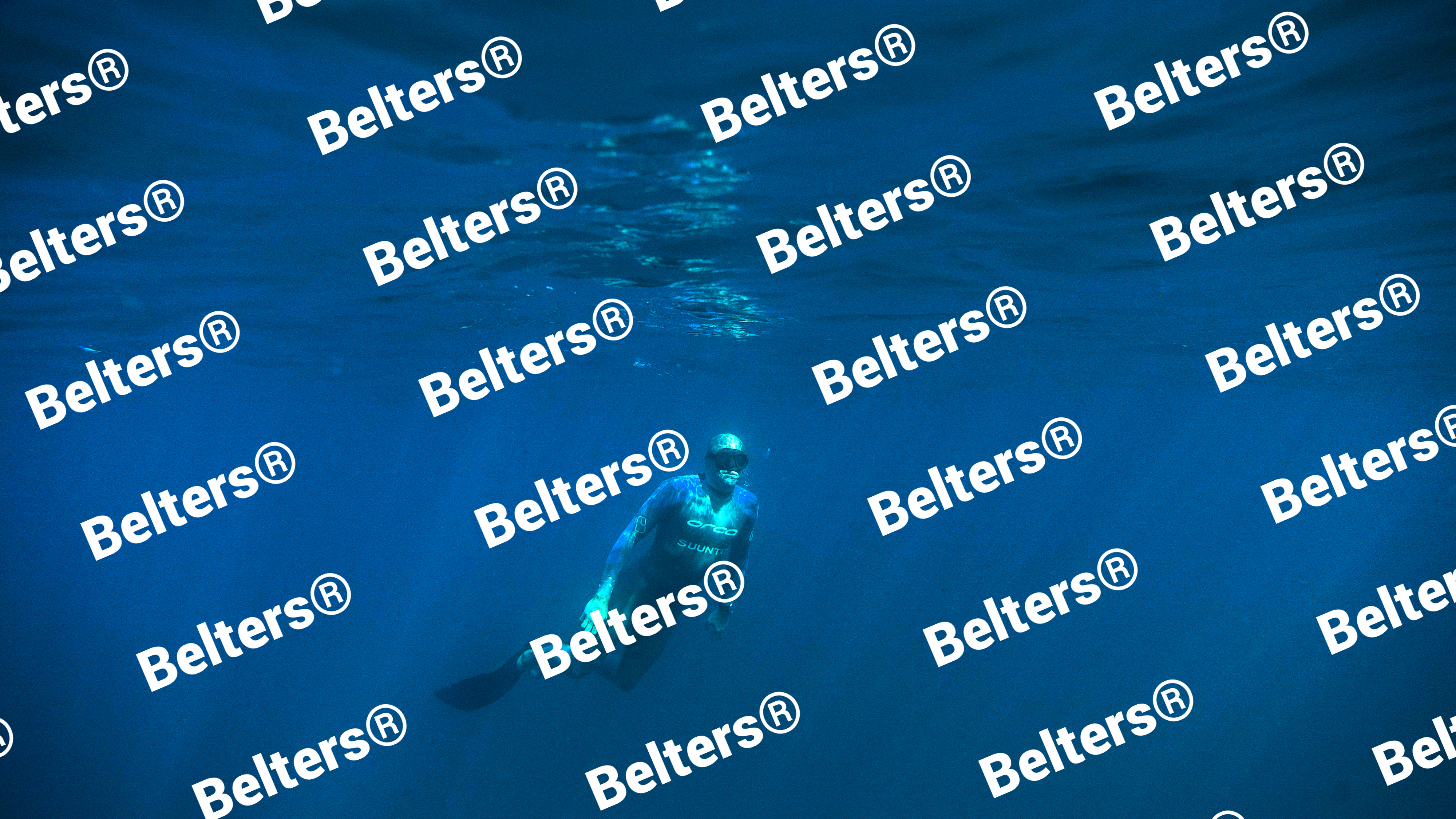British-Born Freediver Sets New Record After Swimming 20 Miles UNDERWATER

Copyright, Belters® News
A British-born freediving champion has become the first person to swim one of the world’s most dangerous oceans – UNDERWATER.
William Trubridge “achieved the impossible” after crossing New Zealand’s notorious Cook Strait in 934 consecutive breath-holding dives.
Using a specially-designed fin to propel himself through the water like a dolphin, each lung-busting dive covered 25 metres – the length of an average swimming pool.
He resurfaced for air between each dive but had no rest for the duration of the 32km (20-mile) journey.
Trubridge, 38, completed the hazardous crossing, between New Zealand’s North and South islands, in just 9hours 15 minutes – two hours faster than most long-distance swimmers.
In total, he made 13,000 dolphin kicks at an average depth of between three and five metres, and held his breath for 5.5 hours.
He also battled hyperthermia and agonising leg cramps from the 14–18 degrees Celsius sea water, as well as blisters and fatigue.
Trubridge is already the current freediving world champion after plunging to a depth of 102metres (330 feet) without fins on a single gulp of air.
But his latest feat on 15 February, also a world-first, has been hailed by fellow adventurers as “truly groundbreaking”.
Ben Hooper, the long-distance ocean swimmer, said Trubridge had “set a “benchmark in endurance that is unlikely to be repeated in our lifetime”.
And the ultra-endurance athlete Alex Flynn said his accomplishments would go down in the “annals of sporting history”.
Trubridge, who was born in Haltwhistle, Northumberland, and moved to New Zealand as a toddler, said he undertook the challenge to raise awareness of the endangered Hector’s and critically endangered Māui dolphins that are being decimated by commercial fishing around New Zealand’s coast, including the Cook Strait.
Speaking yesterday from his home in Havelock North, New Zealand, he said: “It was an amazing and humbling experience to be out there on such a wild stretch of ocean, but I couldn’t stop thinking about the fact that the dolphins who have evolved for millions of years in those waters don’t even have as much freedom as I do, and are still being caught in fishing nets used in their territory.”
Trubridge, who is widely considered to be the world’s best all-round freediver, set off from Cape Terawhiti, near Wellington on New Zealand’s North Island, at 10:15am.
Wearing a 2mm wetsuit and dolphin-like monofin, he used his incredible breath-holding ability to swim 25 to 30 metres underwater before resurfacing for a 10-second rest.
This means he completed the 20-mile journey on just 934 breaths. The average person takes 960 breaths in a single hour.
All propulsion took place underwater on a breath hold. This meant he had no physical rest at the surface because he was forced to tread water to prevent being aided by or pushed off course by the strong currents and gale-force winds.
The water temperatures dropped to just 14 degrees Celsius, which meant he had to drink every 30 minutes and guzzle warm soup that was thrown to him in a zip-lock bag.
Other than a support boat and kayak – and for a time by two whales – Trubridge completed the arduous journey across one of the world’s most inhospitable open waters alone.
By the time he reached Perano Head on the northern tip of the South Island, at 7:30pm, Trubridge was hypothermic, vomiting and crippled by cramp.
“I knew it was going to be tough, but towards the end it really came down to the wire,” he said.
“I was being swept sideways by the northerly current and could see that I was running out of coastline in front of me to finish the swim. At the same time the water got colder, and the sun disappeared behind the headland.
“So I had to finish quickly or I wouldn’t have finished at all.”
Trubridge, who is set to become a father next month, undertook the voyage to highlight the plight of two of the world’s smallest dolphins, New Zealand’s Hector’s and Māui.
Both are threatened with extinction because only a small part of their habitat is protected.
Maui dolphins, in particular, are facing “overwhelming destruction” by commercial and recreational fishing off New Zealand’s North Island and are among the planet’s rarest species.
They are only found in shallow waters off New Zealand, where the population has been decimated by trawling and gillnets – huge walls of nylon netting used to catch fish, which also drown endangered seabirds and other marine mammals.
Numbers have fallen by 94 per cent since the 1970s and only some 50 individuals survive.
Dr Barbara Maas, from the conservation charity NABU International, which works to protect the dolphins, said: “Māui dolphins are on the very cusp of extinction and with just 13 surviving adult females, saving them is a race against time.
“We are deeply grateful to William for his superhuman effort on the dolphins’ behalf. It comes at a critical time. The New Zealand government is currently reviewing the way Māui and Hector’s dolphins are protected. The scientific community agrees that, to avert the dolphins’ extinction, trawling and the use of gillnets must be prohibited throughout their habitat. Unless this happens, their fate is sealed.”
She added: “If we could bottle William’s sterling determination and hand it out in New Zealand, the dolphins would be saved.”


Comments are closed.